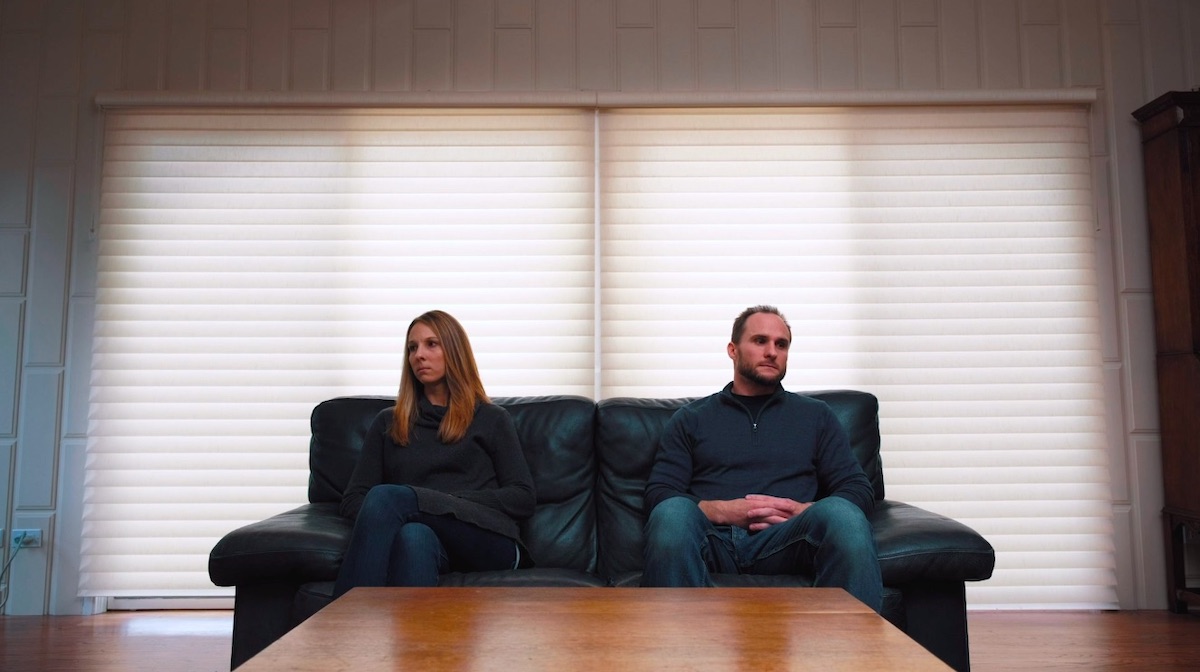
He’ll never understand how I really feel. He wasn’t there for me when I needed him most, so how can I trust him when he can’t see how deeply I’ve been hurt.
After days of heated conversations, tears, and unresolved hurts boiling over, I wondered if there was any way forward. On one hand, it was a miracle that we were still together after all we had been through: my chronic illness, Jeff being on call 24/7 for nine years, a child with special needs, four children with Lyme Disease, job loss, financial loss, several major surgeries, and intimacy struggles… And yet, on the other hand, we had been in survival mode for so long that neither of us had had the time or energy to face what was brewing under the surface. With significant challenges demanding our constant attention, the seemingly less urgent things, those hurts and disagreements, continued to go by the wayside.
Then we found ourselves in a brief season of slight reprieve, and those “lesser” things began to demand attention. Feelings that I hadn’t even realized I was carrying started brewing in me. Anger, resentment, hurt, and trust issues began to erupt as though an emotional volcano had been simmering below the surface for years too long.
For the first time in our marriage, we began to understand how easily couples reach a breaking point from which escape seems to be the only answer. Though we never verbalized or acted on these thoughts, I know they were there.
I attempted to share with Jeff how the layers of hurt and the painful experiences that I had walked through day after day had left deep scars. How desperately I longed for Jeff to see, understand, and tend to my hurting heart. Yet every time I attempted to describe my pain and what I thought he needed to hear, trying to articulate my feelings in ways he could understand, I only walked away more discouraged and angry. It seemed clear to me that he needed to change for us to move forward; and if I could help him see where he needed to change, we would be on a path to healing.

Biblical encouragements that strengthen marriages in times of trial.
I don’t know how long it took for me to realize the futility of my attempts to convince him to “see me” in the way I thought I needed him to. There came a point, though, when the Lord began to show me that though my desire for healing wasn’t wrong, my focus on Jeff as the sole problem was. While I was trying to open my husband’s eyes, the Lord was opening my own. After weeks of exhausting conversations and tension between the two of us, I increasingly brought my heartache and frustrations to the Lord. I stopped pleading with Jeff, and I started pleading with the Lord.
As I began to pray and spend more time in God’s word every day, I felt a burden begin to lift off my shoulders. Instead of trying to come up with new ways to make my points to Jeff, I started to share with him how God was growing me—including confessing to Jeff ways that I had wronged him, but had been too blind to see. Instead of trying to convince Jeff that he needed to change, I trusted God to do the changing work as he saw fit.
Though we still had many hard, honest conversations to navigate, they became more fruitful. Amazingly (but not surprisingly), when we stopped trying to change each other and started asking Christ to change our own hearts, God began to do a deeper work in each of us, and a wonderful work of healing began in our marriage. That season of struggle for us has now become a marker of God’s faithfulness.
If we get this backwards, then our pursuit of joy and our desire to be known and unconditionally loved will be primarily directed at each other, setting our marriages up for frustration, disappointment, and hurt when our “needs” and desires fail to be met. You will actually enjoy your spouse more when you’re not looking to them to be everything you need, or demanding they change to become who you want them to be and then resenting them when they don’t or can’t—or even won’t (if they are not a Christian or if, for the time being, they’re unwilling to consider the state of their own heart).
How easy it is to read Jesus’ warnings against double standards and think of other people who need to hear it—and how ironic it is that we so often do this. But when Jesus asks, “Why do you see the speck that is in your brother’s eye, but do not notice the log that is in your own eye?” (Matthew 7 v 13), he is talking to me—and, likely, you. We are all prone to downplay our own actions and motives while condemning the actions of others and assuming the worst about their motives. It’s no different in marriage. We tend to fixate on our spouse’s shortcomings while excusing or not even seeing our own.
Paul says a Christian should “not … think of himself more highly than he ought to think, but [should] think with sober judgment … according to [his God-given] measure of faith” (Romans 12 v 3). Only when we see ourselves rightly can we “in humility count others more significant than yourselves” (Philippians 2 v 3).
You will actually enjoy your spouse more when you’re not looking to them to be everything you need
Whether your spouse is a Christ-follower or not, you have neither the job of changing them nor the ability to do so. But God can, and will, change you. So you can “work out your own salvation with fear and trembling, for it is God who works in you, both to will and to work for his good pleasure” (Philippians 2 v 12-13). Galatians 5 v 25 calls this keeping in step with the Spirit. God calls us to walk in holiness, and he empowers us to do so through his Spirit.
You cannot change your spouse. So if you desire change or growth in your marriage, it always has to begin with you. Take your eyes off of your spouse and their flaws, and humbly ask the Lord to show you where you need to change, and to work in you by his Spirit so that you can change.
If God can change you, he can change your spouse! He alone has the power and wisdom to convict, grow, and shape their heart to reflect more of his. So, ask him to do those things—ask him to change your spouse if and where he sees best. Rather than challenging them, growing frustrated, and nagging, we can pray! It is hard to be angry with someone we are praying for. It is easier to love someone we have asked God to be at work in. Next time the temperature is rising and you are about to snap at the person you married, stop. Pray.
And then be patient. Often there are no quick fixes, either for our own heart or our spouse’s. God’s timetable and ways are not our own, and it is often through long seasons of waiting that he chooses to work. Jeff and I walked through 13 years of marriage before God suddenly moved and changed both of us within a matter of months. Was that long season difficult? Immensely. But I believe those years were preparing us for the work God had purposed to do in each one of us. And for that, I am thankful.
Together Through The Storms helps married couples to navigate the storms of life together. Working through the book of Job, Sarah Walton (author of "Hope when it Hurts") and her husband Jeff reflect on their own experiences in a marriage that has faced chronic illness, baggage from the past, a child with neurological challenges, and financial difficulties—and show how to cling to Christ and each other. Buy a copy here.